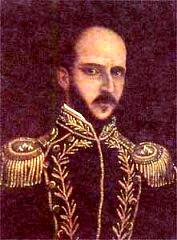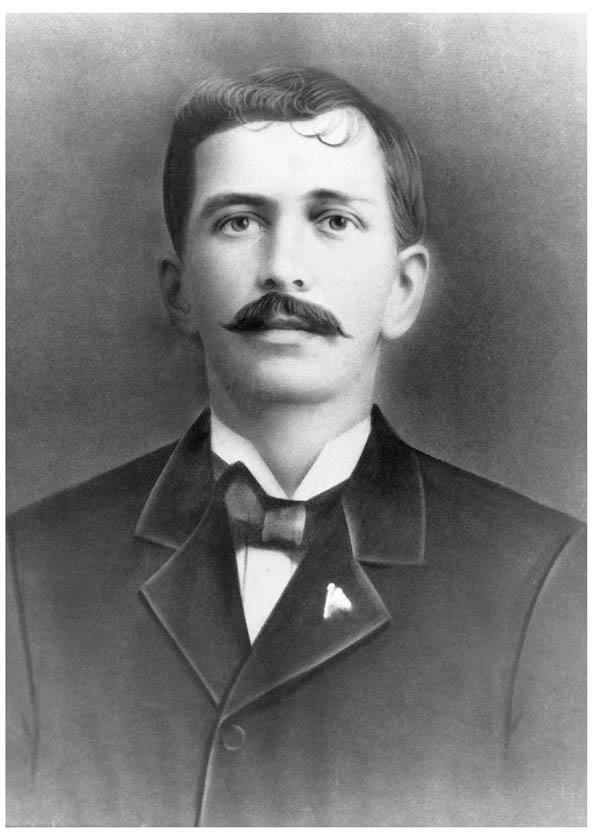|
Manuel Solís Palma
Manuel Solís Palma (3 December 1917 in Los Santos Province – 6 November 2009) was the acting president of Panama from 26 February 1988 to 1 September 1989, under the military rule of Manuel Noriega. He served as education minister in several administrations, and worked on the 1968 presidential campaign of Arnulfo Arias Madrid. In February 1988, Noriega promoted Solís from education minister to president after the firing of president Eric Arturo Delvalle. The US administration of president Ronald Reagan refused to recognize Solís or the diplomats representing him as legitimate. In May, the administration offered a deal in which Noriega would leave office in exchange for the US dropping drug charges against him; however, the Panamanian military rejected the terms, which gave no guarantee that Solís would retain power. Solís served until 1 September 1989, shortly before the US invasion of Panama which deposed Noriega. He was later described as one of a series of Noriega's ... [...More Info...] [...Related Items...] OR: [Wikipedia] [Google] [Baidu] |
President Of Panama
This article lists the heads of state of Panama since the short-lived first independence from the Republic of New Granada in 1840 and the final Separation of Panama from Colombia, separation from Colombia in 1903. Since 1904 the head of state of Panama has been the President of Panama. List of officeholders ;Political parties ;Other affiliations ;Status ;Symbols Died in office Free State of the Isthmus (1840–1841) Republic of Panama (1903–present) Military dictators of Panama (1968–1989) From 1968 to 1989 a military junta exerted a dictatorship over the country and nominated the president, who himself held little power. The following individuals were leaders of the junta. Timeline Latest election See also * Politics of Panama * List of political parties in Panama * History of Panama References {{Heads of State in Central America Lists of heads of state, Panama, List of presidents of Presidents of Panama, *List Lists ... [...More Info...] [...Related Items...] OR: [Wikipedia] [Google] [Baidu] |
Guillermo Endara
Guillermo David Endara Galimany (May 12, 1936 – September 28, 2009) was a Panamanian politician who served as the president of Panama from 1989 to 1994. Raised in a family allied to Panameñista Party founder Arnulfo Arias, Endara attended school in exile in the United States and Argentina following Arias's removal from power in 1941. Endara later received a law degree in Panama and subsequently served as a member of Panama's National Assembly, and briefly as a government minister before heading into exile again following Arias' third overthrow in 1968. After Arias' death in 1988, Endara became a leading opponent of the Manuel Noriega military dictatorship, heading the opposition coalition in the 1989 presidential election. Though his coalition was judged by international observers as having defeated pro-Noriega candidate Carlos Duque, the results were annulled by the government, and Endara and his running mates were attacked in the streets by the paramilitary Dignity ... [...More Info...] [...Related Items...] OR: [Wikipedia] [Google] [Baidu] |
Deaths From Pulmonary Edema
Death is the end of life; the Irreversible process, irreversible cessation of all biological process, biological functions that sustain a living organism. Death eventually and inevitably occurs in all organisms. The remains of a former organism normally begin to Decomposition, decompose shortly after death. Some organisms, such as ''Turritopsis dohrnii'', are Biological immortality, biologically immortal; however, they can still die from means other than Senescence, aging. Death is generally applied to whole organisms; the equivalent for individual components of an organism, such as Cell (biology), cells or Tissue (biology), tissues, is necrosis. Something that is not considered an organism, such as a virus, can be physically destroyed but is not said ''to die'', as a virus is not considered alive in the first place. As of the early 21st century, 56 million people die per year. The most common reason is aging, followed by cardiovascular disease, which is a disease that af ... [...More Info...] [...Related Items...] OR: [Wikipedia] [Google] [Baidu] |
Respiratory Disease Deaths In Panama
The respiratory system (also respiratory apparatus, ventilatory system) is a biological system consisting of specific organs and structures used for gas exchange in animals and plants. The anatomy and physiology that make this happen varies greatly, depending on the size of the organism, the environment in which it lives and its evolutionary history. In land animals, the respiratory surface is internalized as linings of the lungs. Gas exchange in the lungs occurs in millions of small air sacs; in mammals and reptiles, these are called alveoli, and in birds, they are known as atria. These microscopic air sacs have a very rich blood supply, thus bringing the air into close contact with the blood. These air sacs communicate with the external environment via a system of airways, or hollow tubes, of which the largest is the trachea, which branches in the middle of the chest into the two main bronchi. These enter the lungs where they branch into progressively narrower secondary and ter ... [...More Info...] [...Related Items...] OR: [Wikipedia] [Google] [Baidu] |
People From Los Santos Province
The term "the people" refers to the public or common mass of people of a polity. As such it is a concept of human rights law, international law as well as constitutional law, particularly used for claims of popular sovereignty. In contrast, a people is any plurality of persons considered as a whole. Used in politics and law, the term "a people" refers to the collective or community of an ethnic group or nation. Concepts Legal Chapter One, Article One of the Charter of the United Nations states that "peoples" have the right to self-determination. Though the mere status as peoples and the right to self-determination, as for example in the case of Indigenous peoples (''peoples'', as in all groups of indigenous people, not merely all indigenous persons as in ''indigenous people''), does not automatically provide for independent sovereignty and therefore secession. Indeed, judge Ivor Jennings identified the inherent problems in the right of "peoples" to self-determination, as i ... [...More Info...] [...Related Items...] OR: [Wikipedia] [Google] [Baidu] |
2009 Deaths
This is a list of lists of deaths of notable people, organized by year. New deaths articles are added to their respective month (e.g., Deaths in ) and then linked below. 2025 2024 2023 2022 2021 2020 2019 2018 2017 2016 2015 2014 2013 2012 2011 2010 2009 2008 2007 2006 2005 2004 2003 2002 2001 2000 1999 1998 1997 1996 1995 1994 1993 1992 1991 1990 1989 1988 1987 1986 Earlier years ''Deaths in years earlier than this can usually be found in the main articles of the years.'' See also * Lists of deaths by day * Deaths by year (category) {{DEFAULTSORT:deaths by year ... [...More Info...] [...Related Items...] OR: [Wikipedia] [Google] [Baidu] |
1917 Births
Events Below, the events of World War I have the "WWI" prefix. January * January 9 – WWI – Battle of Rafa: The last substantial Ottoman Army garrison on the Sinai Peninsula is captured by the Egyptian Expeditionary Force's Desert Column. * January 10 – Imperial Trans-Antarctic Expedition: Seven survivors of the Ross Sea party are rescued after being stranded for several months. * January 11 – Unknown saboteurs set off the Kingsland Explosion at Kingsland (modern-day Lyndhurst, New Jersey), one of the events leading to United States involvement in WWI. * January 16 – The Danish West Indies is sold to the United States for $25 million (equivalent to $ million in ). * January 22 – WWI: United States President Woodrow Wilson calls for "peace without victory" in Germany. * January 25 – WWI: British armed merchantman is sunk by mines off Lough Swilly (Ireland), with the loss of 354 of the 475 aboard. * January 26 – The se ... [...More Info...] [...Related Items...] OR: [Wikipedia] [Google] [Baidu] |
List Of Presidents Of Panama
This article lists the heads of state of Panama since the short-lived first independence from the Republic of New Granada in 1840 and the final separation from Colombia in 1903. Since 1904 the head of state of Panama has been the President of Panama. List of officeholders ;Political parties ;Other affiliations ;Status ;Symbols Died in office Free State of the Isthmus (1840–1841) Republic of Panama (1903–present) Military dictators of Panama (1968–1989) From 1968 to 1989 a military junta A military junta () is a system of government led by a committee of military leaders. The term ''Junta (governing body), junta'' means "meeting" or "committee" and originated in the Junta (Peninsular War), national and local junta organized by t ... exerted a dictatorship over the country and nominated the president, who himself held little power. The following individuals were leaders of the junta. Timeline Latest election See also * Politic ... [...More Info...] [...Related Items...] OR: [Wikipedia] [Google] [Baidu] |
Pulmonary Edema
Pulmonary edema (British English: oedema), also known as pulmonary congestion, is excessive fluid accumulation in the tissue or air spaces (usually alveoli) of the lungs. This leads to impaired gas exchange, most often leading to shortness of breath ( dyspnea) which can progress to hypoxemia and respiratory failure. Pulmonary edema has multiple causes and is traditionally classified as cardiogenic (caused by the heart) or noncardiogenic (all other types not caused by the heart). Various laboratory tests ( CBC, troponin, BNP, etc.) and imaging studies (chest x-ray, CT scan, ultrasound) are often used to diagnose and classify the cause of pulmonary edema. Treatment is focused on three aspects: * improving respiratory function, * treating the underlying cause, and * preventing further damage and allow full recovery to the lung. Pulmonary edema can cause permanent organ damage, and when sudden (acute), can lead to respiratory failure or cardiac arrest due to hypoxia ... [...More Info...] [...Related Items...] OR: [Wikipedia] [Google] [Baidu] |
Martín Torrijos
Martín Erasto Torrijos Espino (; born July 18, 1963) is a Panamanian politician who was President of Panama from 2004 to 2009. He was fathered out of wedlock by Panamanian military ruler Omar Torrijos, the '' de facto'' head of Panama from 1968 to 1981. Martín Torrijos was educated in economics and political science in the United States. He then returned to Panama, becoming active in the Democratic Revolutionary Party (PRD). He was the party's presidential candidate in the 1999 general election, losing to Arnulfista Party candidate Mireya Moscoso. In the 2004 presidential election, he ran again as the PRD candidate. This time, his primary rival was Solidarity Party candidate Guillermo Endara, whom Torrijos defeated 47% to 31%. Torrijos reformed social security and pensions during his term in office, as well as proposing and passing a $5 billion expansion of the Panama Canal. Torrijos was succeeded by supermarket magnate Ricardo Martinelli in 2009. He is a member of the ... [...More Info...] [...Related Items...] OR: [Wikipedia] [Google] [Baidu] |
US Invasion Of Panama
The United States invaded Panama in mid-December 1989 during the presidency of George H. W. Bush. The purpose of the invasion was to depose the ''de facto'' ruler of Panama, General Manuel Noriega, who was wanted by U.S. authorities for racketeering and Illegal drug trade, drug trafficking. The operation, codenamed Operation Just Cause, concluded in late January 1990 with the surrender of Noriega. The Panama Defense Forces (PDF) were dissolved, and President-elect Guillermo Endara was sworn into office. Noriega, who had longstanding ties to United States intelligence agencies, consolidated power to become Panama's ''de facto'' dictator in the early 1980s. In the mid-1980s, relations between Noriega and the U.S. began to deteriorate due to fallout of the murder of Hugo Spadafora and the removal from office of President Nicolas Ardito Barletta. His criminal activities and association with other spy agencies came to light, and in 1988 he was indicted by federal grand jury, grand j ... [...More Info...] [...Related Items...] OR: [Wikipedia] [Google] [Baidu] |






